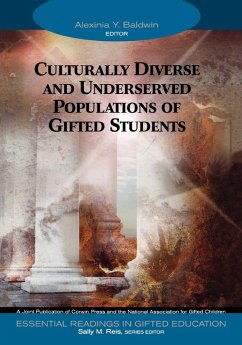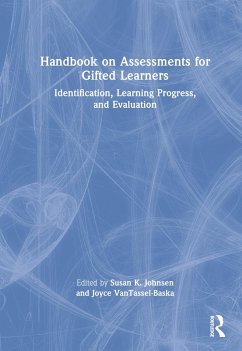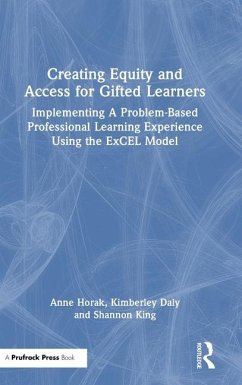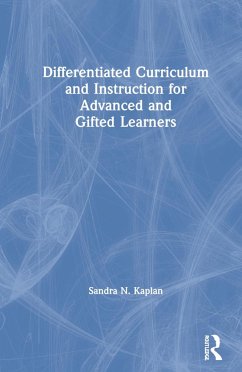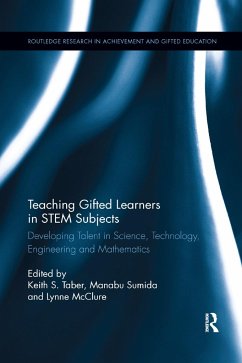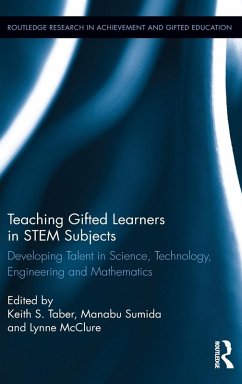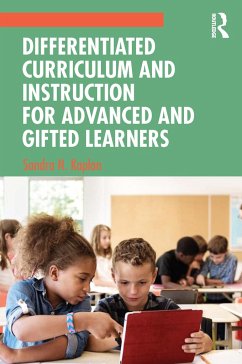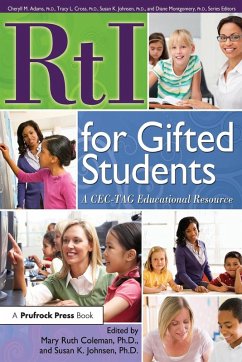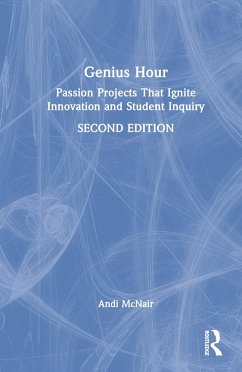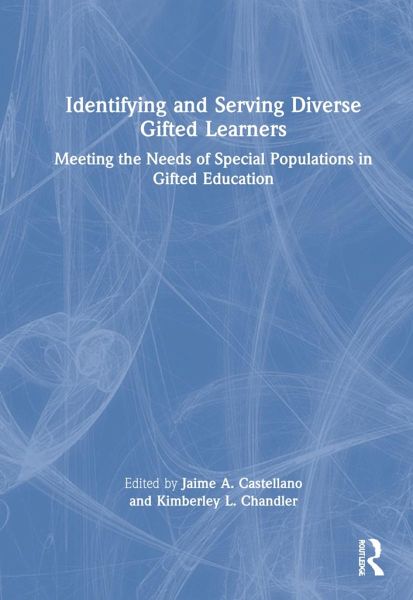
Identifying and Serving Diverse Gifted Learners
Meeting the Needs of Special Populations in Gifted Education
Herausgeber: Castellano, Jaime A.; Chandler, Kimberley L.
Versandkostenfrei!
Versandfertig in 1-2 Wochen
166,99 €
inkl. MwSt.
Weitere Ausgaben:

PAYBACK Punkte
83 °P sammeln!
Grounded in a combination of evidence, personal narratives, interviews, data, and research, Identifying and Serving Diverse Gifted Learners: Meeting the Needs of Special Populations in Gifted Education is a guiding resource for all stakeholder groups in gifted education to shift the equity needle of gifted programs in America. Though it is the right of Black, Hispanic/Latinx, twice-exceptional (2e), low-income, and other special populations of students to have access to advanced academic programs in the American educational system, complex and deep-rooted systemic issues often block the way. T...
Grounded in a combination of evidence, personal narratives, interviews, data, and research, Identifying and Serving Diverse Gifted Learners: Meeting the Needs of Special Populations in Gifted Education is a guiding resource for all stakeholder groups in gifted education to shift the equity needle of gifted programs in America. Though it is the right of Black, Hispanic/Latinx, twice-exceptional (2e), low-income, and other special populations of students to have access to advanced academic programs in the American educational system, complex and deep-rooted systemic issues often block the way. This seminal text thoughtfully brings the conversation around historically underrepresented students in gifted education to the forefront, drawing on real-world examples to provide an accessible discussion of foundational, interdependent topics, including current research and promising educational practices. Readers will develop a basic theoretical understanding of the issues and be able to advance more responsive programs and experiences for low-income, racially, culturally, and linguistically diverse gifted students, and other diverse gifted populations. This text serves as a beacon to motivate K-12 educators, researchers, and scholars to carry the torch of advocacy on behalf of those students historically underrepresented in programs for the gifted and talented.





